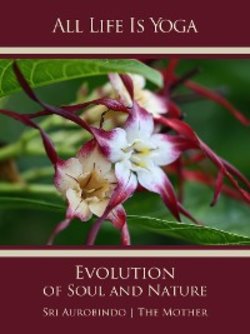Читать книгу All Life Is Yoga: Evolution of Soul and Nature - Sri Aurobindo - Страница 11
Chapter 2 The Reincarnating Soul
ОглавлениеWords of Sri Aurobindo
Human thought in the generality of men is no more than a rough and crude acceptance of unexamined ideas. Our mind is a sleepy or careless sentry and allows anything to pass the gates which seems to it decently garbed or wears a plausible appearance or can mumble anything that resembles some familiar password. Especially is this so in subtle matters, those remote from the concrete facts of our physical life and environment. Even men who will reason carefully and acutely in ordinary matters and there consider vigilance against error an intellectual or a practical duty, are yet content with the most careless stumbling when they get upon higher and more difficult ground. Where precision and subtle thinking are most needed, there they are most impatient of it and averse to the labour demanded of them. Men can manage fine thought about palpable things, but to think subtly about the subtle is too great a strain on the grossness of our intellects; so we are content with making a dab at the truth, like the painter who threw his brush at his picture when he could not get the effect that he desired. We mistake the smudge that results for the perfect form of a verity.
It is not surprising then that men should be content to think crudely about such a matter as rebirth. Those who accept it, take it usually ready-made, either as a cut-and-dried theory or a crude dogma. The soul is reborn in a new body, – that vague and almost meaningless assertion is for them sufficient. But what is the soul and what can possibly be meant by the rebirth of a soul? Well, it means reincarnation; the soul, whatever that may be, had got out of one case of flesh and is now getting into another case of flesh. It sounds simple, – let us say, like the Djinn of the Arabian tale expanding out of and again compressing himself into his bottle or perhaps as a pillow is lugged out of one pillowcase and thrust into another. Or the soul fashions for itself a body in the mother’s womb and then occupies it, or else, let us say, puts off one robe of flesh and then puts on another. But what is it that thus “leaves” one body and “enters” into another? Is it another, a psychic body and subtle form, that enters into the gross corporeal form, – the Purusha perhaps of the ancient image, no bigger than a man’s thumb, or is it something in itself formless and impalpable that incarnates in the sense of becoming or assuming to the senses a palpable shape of bone and flesh?
In the ordinary, the vulgar conception there is no birth of a soul at all, but only the birth of a new body into the world occupied by an old personality unchanged from that which once left some now discarded physical frame. It is John Robinson who has gone out of the form of flesh he once occupied; it is John Robinson who tomorrow or some centuries hence will reincarnate in another form of flesh and resume the course of his terrestrial experiences with another name and in another environment. Achilles, let us say, is reborn as Alexander, the son of Philip, a Macedonian, conqueror not of Hector but of Darius, with a wider scope, with larger destinies; but it is still Achilles, it is the same personality that is reborn, only the bodily circumstances are different. It is this survival of the identical personality that attracts the European mind today in the theory of reincarnation. For it is the extinction or dissolution of the personality, of this mental, nervous and physical composite which I call myself that is hard to bear for the man enamoured of life, and it is the promise of its survival and physical reappearance that is the great lure. The one objection that really stands in the way of its acceptance is the obvious non-survival of memory. Memory is the man, says the modern psychologist, and what is the use of the survival of my personality, if I do not remember my past, if I am not aware of being the same person still and always? What is the utility? Where is the enjoyment?
............
